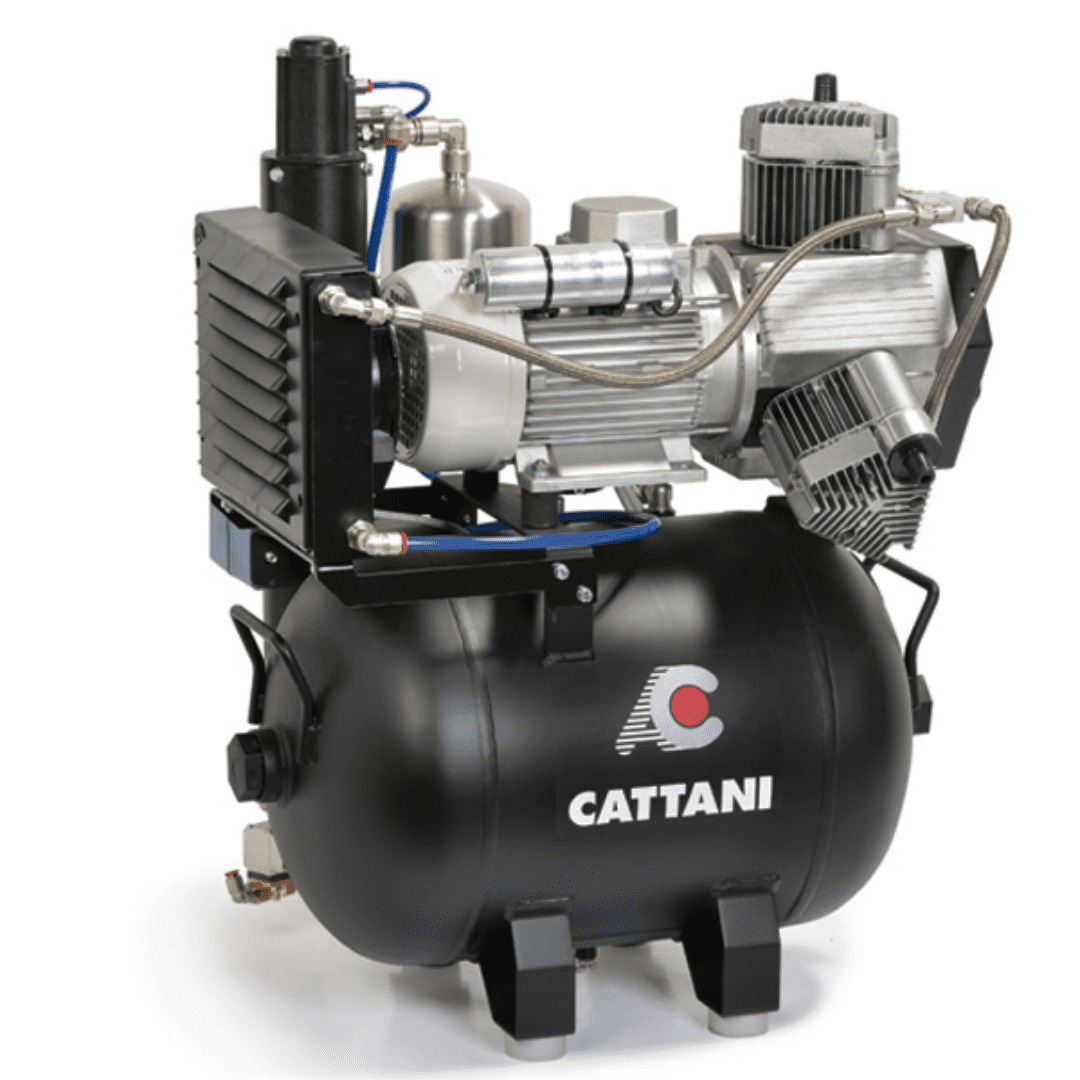A modern dental practice is a busy environment in which having the right equipment on hand is crucial. Among the vital pieces of equipment that work tirelessly behind the scenes are dental compressors. As the hidden powerhouse behind many critical dental procedures, selecting the right one from a reputable supplier is a crucial purchasing decision and an investment in a dental practice’s efficiency, reliability, and patient care.
The Role of Dental Compressors
Dental compressors serve as the cornerstones of a dental surgery’s air supply system. These machines power everything from handpieces to air syringes and CAD/CAM units. Installing a high-quality silent dental compressor will ensure your practice operates smoothly without the disruptive noise that can unsettle patients during treatment.
Modern oil-free compressor technology has revolutionised dental practices across the UK. These units deliver clean, uncontaminated air that meets strict medical standards – essential when working in a patient’s mouth. The absence of oil eliminates the risk of contamination, making oil-free compressors the gold standard for contemporary dental surgeries.
Selecting the Right Dental Compressor for Your Practice
When choosing a dental compressor, you will need to consider the following four factors:
- Surgery size and air requirements: The number of surgeries and concurrent users will determine the capacity needed. Undersized compressors lead to pressure drops and equipment failure.
- Air quality: Medical-grade air requires proper filtration systems integrated with your dental air systems.
- Noise levels: A silent dental compressor will create a more comfortable environment for both patients and staff. This can be particularly important in an open-plan practice.
- Redundancy: Dual dental compressors provide backup capability, ensuring your practice does not risk unplanned downtime due to compressor failure.
Compressor Maintenance is Vital to Protect Your Investment
Regular maintenance of your compressors isn’t optional: it’s essential. A comprehensive compressor maintenance programme should include:
- Daily draining of condensate
- Regular filter replacement
- Annual service by qualified engineers
- Testing of safety valves and pressure settings
- Thorough inspection of all components
Failing to maintain your air systems properly can lead to unexpected breakdowns, costly emergency repairs, and potentially unhygienic air quality. In turn, this could result in appointment cancellations that impact both your revenue and patient trust.
The Value of Professional Support
An annual maintenance contract for your dental compressors provides peace of mind. These contracts typically include priority emergency response, discounted parts, and documentation of compliance with regulatory requirements.
Professional engineers who specialise in dental equipment understand the unique requirements of dental air systems and can identify potential issues before they develop into serious problems.
Compliance and Safety
In the UK, dental compressors fall under pressure system regulations, requiring documented inspections and maintenance. Written schemes of examination must be followed, with thorough inspections conducted according to specified schedules.
Your dental compressor is a vital part of your practice’s technical infrastructure. Choosing the right unit and maintaining it properly is good practice and essential for efficient, compliant operation. Don’t wait for a breakdown to recognise the importance of your dental air systems. Consult our experts at Hague Dental Supplies to ensure your practice operates safely and efficiently for years to come.









